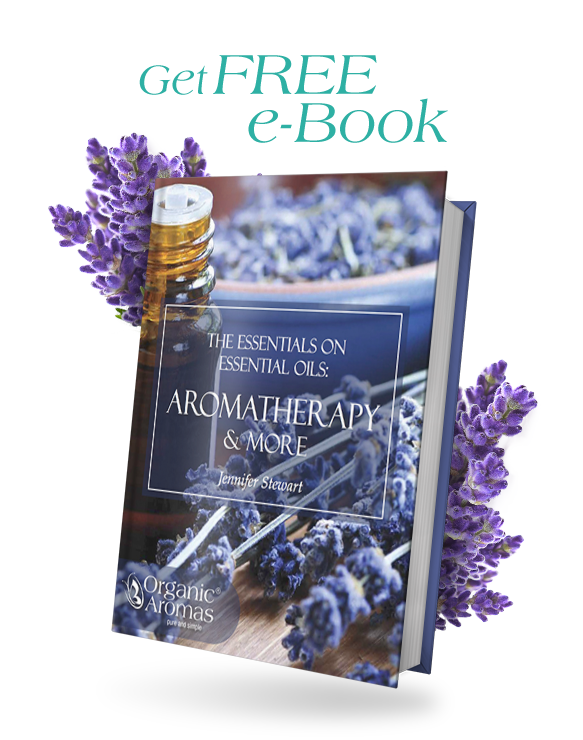Top Essential Oils for TMJ Relief: Effective Solutions for Jaw Pain
Are you struggling with TMJ pain and wondering if essential oils can help? Essential oils for TMJ might offer relief from discomfort and tension. This article covers the most effective essential oils for TMJ relief, how they work, and how to use them safely.
Key Points
- TMJ disorders involve pain and discomfort in the jaw joint and muscles, often caused by genetics, arthritis, injury, or behaviors like teeth grinding.
- Essential oils such as lavender, peppermint, eucalyptus, and chamomile can help alleviate TMJ pain through their anti-inflammatory and analgesic properties, but they should be used as part of a broader treatment plan.
- Safe use of essential oils requires proper dilution, avoiding synthetic ingredients, and consulting healthcare professionals to ensure they complement the overall treatment strategy.
Understanding TMJ Disorders
The temporomandibular joint (TMJ) acts like a sliding hinge, connecting your jawbone to your skull. This joint allows you to open and close your mouth, as well as move your lower jaw back and forth or side to side. When functioning correctly, the TMJ enables smooth movements necessary for chewing, speaking, and even yawning. However, when issues arise, this can lead to TMJ disorders, causing significant discomfort and pain.

What is TMJ?
TMJ disorders involve problems with the jaw joints and the muscles and ligaments around them. These issues can lead to symptoms such as jaw discomfort, headaches, and challenges with mouth movement.
When the jaw joint and the muscles that control jaw movement experience pain, it is known as TMJ disorders. Symptoms may include:
- tenderness
- discomfort
- difficulty chewing
- jaw pain, sometimes being the most pain experienced
- muscle tension
- popping sounds
- pain or tenderness in one or both temporomandibular joints, making it difficult to open or close your mouth
These disorders can be caused by various factors, such as genetics, arthritis, or a jaw injury. Additionally, behaviors like teeth grinding, known as bruxism, can contribute to TMJ discomfort.
The precise cause of TMJ disorders is often difficult to determine. However, it is clear that bones shifting out of their proper alignments or tissues becoming inflamed can lead to pain and tension in the temporomandibular joints. Effectively managing and treating TMJ disorders requires a clear understanding of these underlying issues. The diagnosis and treatment of TMJ disorders often involve neuromuscular dentistry, a field that emphasizes the harmonious function of jaw muscles, joints, and teeth.

Sign Up to Get Your FREE
e-Book Here…
Identifying TMJ Disorders
Diagnosing TMJ disorders requires a thorough clinical examination by a healthcare professional. During the examination, doctors or dentists may:
- Listen to and feel the jaw as you open and close your mouth to detect any irregularities
- Observe the range of motion in the jaw
- Press on areas around the jaw to identify pain or discomfort
These steps help pinpoint the specific areas affected by TMJ disorders and the severity of the condition.
Imaging techniques are often employed to gain a more detailed understanding of the joint’s condition. Some common imaging techniques include:
- Dental X-rays, which can examine the teeth and jaw
- CT scans, which provide detailed images of the bones involved in the joint
- MRI scans, which are particularly useful for revealing problems with the joint’s disk or surrounding soft tissues
These diagnostic tools play a significant role in establishing an accurate diagnosis and formulating an effective treatment plan.
The Role of Essential Oils in TMJ Relief

When it comes to alleviating TMJ pain, essential oils offer a natural and effective solution. Essential oils like lavender and peppermint have anti-inflammatory and analgesic properties that can help relieve TMJ pain when massaged into the affected area. Lavender oil, for instance, is known for its calming effects and ability to reduce stress, which can prevent TMJ flares such as teeth clenching. Similarly, peppermint oil provides a cooling sensation that can numb the area and offer relief from jaw pain.
However, keep in mind that essential oils cannot tackle the root causes of TMJ disorders. They are best used as part of a comprehensive treatment plan that includes other modalities like physical therapy and stress management. Recent studies suggest that essential oils could be a valuable addition to TMJ disorder treatment plans, but further research is needed to fully understand their long-term benefits.
Scientific Support for Using Essential Oils in TMJ Relief
To provide a deeper understanding of how essential oils can be an effective holistic treatment for TMJ disorders, we explore the scientific evidence supporting their use in alleviating pain and inflammation.
Evidence for Essential Oils in Pain and Inflammation Relief
- Lavender Oil: Lavender oil is well-documented for its analgesic and anti-inflammatory properties. Research indicates that lavender oil can significantly reduce pain and inflammation when applied topically, making it a potential remedy for TMJ disorders. A study found that lavender oil can reduce the intensity of pain in patients with chronic pain conditions1.
- Peppermint Oil: The menthol in peppermint oil provides a cooling effect that can help numb the pain and reduce muscle tension. Studies have shown that topical application of peppermint oil can relieve muscle and joint pain, which is beneficial for TMJ sufferers. For instance, a study highlighted the significant analgesic and anti-inflammatory properties of peppermint oil, making it a viable option for pain relief2.
- Eucalyptus Oil: Known for its anti-inflammatory and analgesic effects, eucalyptus oil can help manage TMJ pain by reducing inflammation and discomfort. Research supports its effectiveness in treating inflammatory conditions and providing pain relief3.
- Chamomile Oil: Chamomile oil’s anti-inflammatory properties make it useful for reducing inflammation and soothing muscle tension associated with TMJ disorders. Studies have highlighted its efficacy in managing pain and inflammation in various conditions4.
Mechanisms of Action
- Anti-inflammatory Effects: Essential oils such as lavender, peppermint, and eucalyptus contain compounds that inhibit the production of inflammatory mediators. This action can help reduce the inflammation in the temporomandibular joint and surrounding muscles, easing pain and discomfort.
- Analgesic Properties: Many essential oils act on the body’s pain pathways, providing a natural analgesic effect. For instance, menthol in peppermint oil activates cold-sensitive receptors in the skin, providing a cooling sensation that distracts from pain and reduces muscle spasms.
- Muscle Relaxation: Oils like lavender and chamomile help relax the muscles around the jaw, which can alleviate tension and reduce the severity of TMJ symptoms.
Clinical Implications
While essential oils should not replace conventional treatments for TMJ disorders, they can serve as a complementary therapy. Their natural anti-inflammatory and analgesic properties make them a valuable addition to a holistic treatment plan, potentially improving patient outcomes when combined with other treatments like physical therapy and stress management.
Top Essential Oils for TMJ Pain

Several essential oils stand out for their ability to manage TMJ pain effectively. Among these, the following oils are particularly noteworthy:
- Lavender oil
- Peppermint oil
- Eucalyptus oil
- Chamomile oil
Each of these oils offers unique properties that can help alleviate the symptoms of TMJ disorders, making them valuable tools in your pain management toolkit.
Lavender Oil
Lavender oil is a powerful ally in the fight against TMJ pain due to its anti-inflammatory and antispasmodic properties. By reducing nerve pain and helping to relax the muscles and ligaments in the jaw joint, lavender oil can significantly diminish muscle tension. Its calming effects are instrumental in preventing TMJ flares, as they help reduce stress and teeth clenching.
Additionally, lavender oil serves as a natural sleep aid, making it an excellent option for nighttime treatment. Applying it before bed can help relax the jaw muscles, ensuring a more restful sleep and reducing the likelihood of waking up with TMJ discomfort. Blending it with a carrier oil, like coconut oil, enhances its effectiveness and ensures safe application.
Susan F.’s Journey with Essential Oils for TMJ Relief
Susan’s Story
Susan F., a 40-year-old graphic designer, had been dealing with TMJ pain for several years. The constant discomfort and muscle tension made it difficult for her to focus on her work and enjoy her daily activities. Frustrated with conventional treatments that offered limited relief, Susan decided to explore natural remedies and came across the benefits of essential oils.
Susan started using a blend of lavender and peppermint essential oils as part of her nighttime routine. Within a few weeks, she noticed a significant reduction in jaw tension and an overall improvement in her sleep quality.
Method: Essential Oil Blend for TMJ Relief
Ingredients:
- 2 drops of lavender essential oil
- 2 drops of peppermint essential oil
- 1 teaspoon of coconut oil (as a carrier oil)
Instructions:
- Dilution: Mix the lavender and peppermint essential oils with the coconut oil in a small bowl to create a 1% concentration.
- Application: Gently massage the diluted oil onto the jaw area using circular motions for about 5-10 minutes.
- Relaxation: After application, perform gentle jaw exercises or relaxation techniques to further alleviate tension.
Peppermint Oil
Peppermint oil is another excellent essential oil for TMJ relief. It is known for its ability to:
- Relax the jaw and face muscles
- Provide a cooling sensation due to the menthol content
- Ease pain and numb the affected area
- Provide immediate relief from muscle tension and inflammation
These properties make peppermint oil a go-to remedy for many suffering from TMJ disorders.
The application process is simple yet effective. When diluted with a carrier oil and applied topically, peppermint oil can provide swift relief from jaw pain and associated symptoms. Its cooling effect can be particularly soothing after a long day of jaw discomfort.

Join Now and Get a Coupon for 10% Off!
Eucalyptus Oil
Eucalyptus oil stands out for its potent anti-inflammatory properties, making it a valuable addition to TMJ pain management. By decreasing inflammation and blocking nerve signals, eucalyptus oil can effectively reduce the pain and swelling associated with TMJ disorders.
Using eucalyptus oil involves diluting it with a carrier oil and massaging it into the affected areas. This method not only alleviates pain but also helps improve blood circulation, further aiding in the healing process. Its numbing effects provide additional comfort, making it easier to manage daily activities without constant pain.
Chamomile Oil
Chamomile oil is renowned for its calming and anti-inflammatory properties, making it a perfect choice for TMJ relief. It helps reduce inflammation related to joint conditions and relaxes the jaw muscles, much like peppermint oil. This dual action makes chamomile oil an effective natural remedy for managing TMJ discomfort.
Incorporating chamomile oil into your routine involves diluting it with a carrier oil and applying it to the jaw area. Its soothing properties can help alleviate tension and promote a sense of calm, which is particularly beneficial during stressful periods that might exacerbate TMJ symptoms.
How to Use Essential Oils Safely
Despite the numerous benefits of essential oils, it’s paramount to use them safely to evade potential side effects. Diluting essential oils to about a 1% concentration for skin application is essential to prevent skin reactions such as dermatitis or chemical burns.
Consulting healthcare professionals before incorporating essential oils into your treatment plan is also highly recommended.

Dilution and Application
The safe and effective use of essential oils hinges on their proper dilution and application. To achieve a 1% concentration, mix one drop of essential oil with one teaspoon of carrier oil, such as coconut oil. This ensures that the oil is safe for topical use and minimizes the risk of skin irritation or allergic reactions.
Apply the diluted essential oils to areas of tenderness around the jaw, often in combination with gentle massage. This method not only helps in relieving TMJ pain but also promotes relaxation and improves blood circulation in the affected areas.
Always check the purity and potency of the essential oils and discuss their use with a healthcare professional to ensure the best results.
Avoiding Synthetic Ingredients
Not all essential oils are created equal, and the presence of synthetic ingredients can significantly reduce their effectiveness. Given the lack of regulation in the essential oils industry, it becomes paramount to select products that are 100% pure and devoid of synthetic additives. Some brands may include less expensive ingredients, like vegetable oil or synthetic components, which can diminish the oil’s therapeutic properties.
To ensure you are using high-quality oils, opt for those that are labeled as 100% pure essential oils. This guarantees that you are getting the full benefits of the natural remedy without any harmful additives. Checking for certifications or third-party testing can also help verify the purity and quality of the oils you choose.
Consulting Healthcare Professionals
It’s vital to seek advice from healthcare professionals before commencing any treatment involving essential oils. Discussing your plans with a doctor or oral care provider can help prevent potential interactions with medications or allergic reactions. This step ensures that the use of essential oils is safe and complementary to your overall treatment strategy.
Securing approval from healthcare professionals ensures a unified approach to your treatment. This collaborative approach helps in tailoring a treatment plan that effectively addresses your TMJ symptoms while minimizing risks.

Sign Up to Get Your FREE Essential Oils e-Book Here
Holistic Approaches to TMJ Pain Management
Holistic treatments for TMJ disorders offer non-invasive and natural remedies that can be highly effective. Stress management techniques, such as yoga, meditation, and deep breathing exercises, can help reduce TMJ symptoms by lowering stress levels. Acupuncture is another holistic treatment that stimulates the body’s natural healing processes and relieves pain.
Chiropractic care can improve joint mobility and reduce pain through spinal adjustments and soft tissue therapy. Dietary changes, like incorporating anti-inflammatory foods, can also help reduce inflammation associated with TMJ disorders. These approaches often have fewer side effects compared to conventional treatments, making them suitable for those sensitive to medications.
Combining holistic approaches with mainstream healthcare options can provide a comprehensive treatment strategy for managing TMJ pain and chronic pain. This integrative approach ensures that you are addressing all aspects of the disorder, leading to more effective and sustainable relief.
Creating a Personalized Treatment Plan
Given the uniqueness of each case, a personalized treatment plan becomes vital for effective management of TMJ disorders. If at-home remedies are ineffective, a dentist can examine your mouth and oral structures to determine the cause of jaw dysfunction and create a customized treatment plan. Neuromuscular dentistry, which focuses on the harmonious function of the jaw muscles, joints, and teeth, often plays a vital role in this process.
Non-surgical treatment options, such as physical therapy, orthodontic treatment, and painless MLS cold laser treatments, can be included in the treatment plan. This comprehensive approach aims to provide long-term solutions to relieve pain and improve jaw function.
In the end…
To sum up, essential oils like lavender, peppermint, eucalyptus, and chamomile can be effective in managing TMJ pain. However, they should be used as part of a broader treatment plan that includes both conventional and holistic approaches. Safe usage practices, such as proper dilution and consulting healthcare professionals, are crucial to maximize the benefits of these natural remedies.
By combining essential oils with other treatments, you can create a personalized plan that addresses your unique needs. This integrative approach not only helps in managing TMJ symptoms but also improves your overall quality of life. Take the first step towards a pain-free life by exploring these natural and holistic options.

Join Our Exclusive Member Club to get Big Discounts!
Frequently Asked Questions
Can essential oils cure TMJ disorders?
Essential oils cannot cure TMJ disorders. While they may help alleviate symptoms like pain and inflammation, they do not address the underlying causes of the disorder.
Which essential oil is best for TMJ pain relief?
Lavender, peppermint, eucalyptus, and chamomile oils are all effective for TMJ pain relief due to their unique properties that can help manage symptoms. Lavender, peppermint, eucalyptus, and chamomile oils can all provide relief for TMJ pain.
How should I apply essential oils for TMJ pain relief?
To relieve TMJ pain, dilute essential oils to a 1% concentration (you can work up to a higher %) and apply them topically to the tender areas around your jaw, combining them with gentle massage for better results.
Are there any risks associated with using essential oils for TMJ pain?
Yes, there are potential risks associated with using essential oils for TMJ pain, including skin reactions such as dermatitis, phototoxicity, chemical burns, or allergic reactions. It is important to dilute the oils properly and consult with a healthcare professional before use.
What other treatments can help manage TMJ disorders?
In addition to essential oils, holistic approaches such as stress management, acupuncture, chiropractic care, and dietary changes can be effective in managing TMJ disorders. These treatments should be integrated into a personalized and comprehensive treatment plan for the individual.
- Silva, G., Luft, C., Lunardelli, A., Amaral, R., Melo, D., Donadio, M., Nunes, F., Azambuja, M., Santana, J., Moraes, C., Mello, R., Cassel, E., Pereira, M., & Oliveira, J., 2015. Antioxidant, analgesic and anti-inflammatory effects of lavender essential oil.. Anais da Academia Brasileira de Ciencias, 87 2 Suppl, pp. 1397-408
- Kehili, S., Boukhatem, M., Belkadi, A., Ferhat, M., & Setzer, W., 2020. Peppermint (Mentha piperita L.) essential oil as a potent anti-inflammatory, wound healing and anti-nociceptive drug. European Journal of Biological Research, 10, pp. 132-149
- Nakamura, T., Yoshida, N., Yamanoi, Y., Honryo, A., Tomita, H., Kuwabara, H., & Kojima, Y., 2020. Eucalyptus oil reduces allergic reactions and suppresses mast cell degranulation by downregulating IgE-FcεRI signalling. Scientific Reports, 10
- Bhaskaran, N., Shukla, S., Srivastava, J., & Gupta, S. (2010). Chamomile: an anti-inflammatory agent inhibits inducible nitric oxide synthase expression by blocking RelA/p65 activity.. International journal of molecular medicine, 26 6, 935-40







